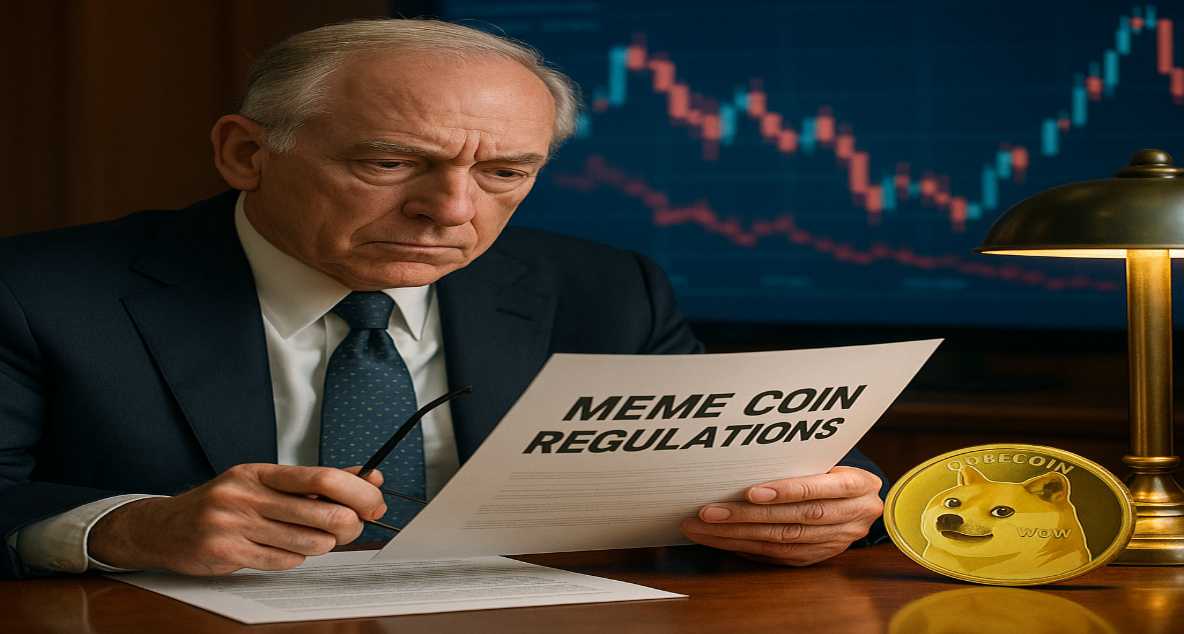Meme Coin SEC Statement is the U.S. Securities and Exchange Commission (SEC) has intensified its scrutiny over meme coins, signaling a significant shift in how these viral digital assets may be regulated in the near future. This “meme coin SEC statement” has sparked waves across the crypto market, especially among retail investors and meme coin creators, who thrive on hype, social media trends, and speculative gains.
In this article, we explore the SEC’s position on meme coins, the possible implications of its statements, and what investors should do to stay compliant while pursuing high-risk, high-reward digital assets.
What Is the SEC’s Stance on Meme Coins?
The SEC has traditionally focused on regulating securities under the Howey Test, which defines whether a digital asset qualifies as an investment contract. Meme coins—such as Dogecoin, Shiba Inu, and PEPE—are often created with little or no utility, thrive on community sentiment, and are generally not backed by real-world value or fundamental tech.
In recent public commentary, the SEC has warned that many meme coins could fall under securities laws, especially if they are promoted with promises of profit or involve centralized actors influencing price. The SEC’s statement on meme coins implies more enforcement actions may follow, particularly targeting creators and influencers who mislead the public.
This move aligns with broader efforts to increase investor protection in speculative altcoin markets, which you can read more about in SEC’s impact on crypto markets.
Why Is the Meme Coin SEC Statement Important?
Meme coins have exploded in popularity, often generating parabolic returns within hours of listing. However, this rapid rise usually lacks sustainable fundamentals. The SEC’s statement acts as a cautionary notice, reminding investors that
- They may be buying into unregistered securities
- Influencers hyping meme coins might be held legally accountable
- Platforms facilitating such trades could face regulatory repercussions
As meme coin investing becomes mainstream, the SEC aims to prevent pump-and-dump schemes and protect less-informed retail investors. These developments are particularly relevant to users navigating IDO launchpads, where meme coins are frequently launched. Learn more about navigating these platforms in our guide to the Best IDO Launchpads 2025.
Legal Gray Area: Meme Coins vs. Utility Tokens
Meme coins occupy a regulatory gray area. Unlike utility tokens such as Chainlink or Ethereum, meme tokens often don’t serve any technical purpose. The SEC’s ambiguity adds uncertainty to both developers and investors who wonder whether meme coins are simply jokes or unregistered investment products.
Many creators argue meme coins are art, expression, or internet culture—similar to NFTs. But if coins are sold with the intention of financial gain, they could be subject to regulatory enforcement.
Understanding these nuances is critical before jumping into meme coins. Get a full picture of crypto regulations in our article on SEC, coin, and crypto regulation explained.
Investor Implications: What Should You Do?
Here’s what you can do to protect yourself as a crypto investor amid increasing SEC pressure on meme coins:
✅ 1. Do Your Own Research (DYOR)
Avoid jumping into a meme coin just because it’s trending on X or Reddit. Check for developer transparency, smart contract audits, and community backing.
✅ 2. Avoid Hype-Driven Pumps
Coins that spike 10x overnight often crash just as fast. Read our guide to High-Risk, High-Reward Crypto Coins for 2025 to spot warning signs.
✅ 3. Stay Informed on Regulatory Updates
Follow SEC statements closely. As the regulatory framework evolves, certain meme coins may be delisted or face legal challenges.
Are Meme Coins Still Worth Investing In?
Despite their volatility and regulatory risk, meme coins continue to attract attention due to their potential for massive returns. With the right risk management, some investors still see them as moonshot opportunities. Explore our latest research on Best Crypto Moonshots 2025 to discover coins with serious upside—but also serious risk.
For those willing to speculate with caution, meme coins remain a unique, albeit speculative, part of the evolving crypto ecosystem.
The Future of Meme Coins and Regulation
As regulation tightens, meme coin creators may be forced to incorporate utility or comply with securities laws. New token launches will likely require more transparency, proper documentation, and perhaps even KYC/AML checks for investors and developers.
Projects built with transparency from the start—like those on Top Crypto Launchpad Tokens for Micro-Cap Projects—are more likely to withstand legal scrutiny in the future.
Conclusion
The meme coin SEC statement is a clear indication that the era of unchecked speculative mania is under regulatory watch. While meme coins remain a lucrative segment for some investors, they come with a high degree of legal and financial risk.
Stay informed, invest cautiously, and always understand the regulatory backdrop before entering meme coin markets. For deeper insights into the Ethereum ecosystem’s scaling and gas optimizations, read our guide on Ethereum Blob Gas Fees and how it impacts overall network cost-efficiency.
FAQs
Q1. What is the meme coin SEC statement about?
The SEC has issued warnings suggesting that many meme coins may be classified as unregistered securities, subject to enforcement.
Q2. Can meme coins be regulated as securities?
Yes, if a meme coin is promoted with an expectation of profit, it may fall under the SEC’s Howey Test for securities.
Q3. Will the SEC ban meme coins?
The SEC is unlikely to ban meme coins outright but may crack down on fraudulent or non-compliant projects and influencers.
Q4. How can I safely invest in meme coins?
Do your research, avoid pump-and-dump schemes, and invest only what you can afford to lose. Also, track platforms like CoinTracker for tax compliance and portfolio insights.
